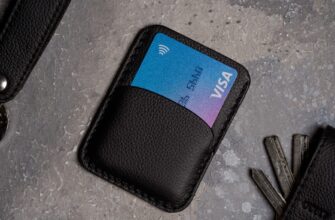- Why Buy Bitcoin to Make Payments? The Digital Currency Advantage
- Step-by-Step: How to Buy Bitcoin for Payments
- Top 5 Platforms to Buy Bitcoin for Transactions
- Executing Payments: How to Spend Your Bitcoin
- Security Essentials for Bitcoin Payments
- Pros and Cons of Bitcoin Payments
- The Future of Bitcoin Payments
- FAQ: Buying Bitcoin for Payments
Why Buy Bitcoin to Make Payments? The Digital Currency Advantage
In today’s digital economy, buying Bitcoin to make payments offers unprecedented financial freedom. Unlike traditional banking systems, Bitcoin transactions bypass intermediaries, enabling borderless transfers with lower fees. Major companies like Microsoft, AT&T, and Overstock now accept crypto, validating Bitcoin’s role as legitimate payment infrastructure. With 420+ million global crypto users (TripleA, 2023), this guide explores how to harness Bitcoin’s speed, security, and decentralization for everyday transactions.
Step-by-Step: How to Buy Bitcoin for Payments
- Choose a Reputable Exchange: Select platforms like Coinbase, Binance, or Kraken with strong security protocols and user-friendly interfaces.
- Verify Your Identity: Complete KYC procedures by submitting ID documents to comply with regulations.
- Fund Your Account: Deposit fiat currency via bank transfer, debit card, or other supported methods.
- Execute Your Purchase: Buy Bitcoin at market price or set limit orders. Start with small amounts if you’re new.
- Transfer to a Wallet: Move Bitcoin from the exchange to a private wallet (e.g., Ledger, Trezor) for enhanced security before spending.
Top 5 Platforms to Buy Bitcoin for Transactions
- Coinbase: Best for beginners – intuitive interface and instant card purchases (3.99% fee)
- Binance: Lowest fees (0.1% spot trading) with 600+ crypto pairs
- Kraken: Advanced security with futures trading options
- Gemini: Regulated US exchange with insurance on digital assets
- Bitstamp: Europe-focused platform with SEPA support
Executing Payments: How to Spend Your Bitcoin
When ready to buy Bitcoin to make payment:
- Locate merchants accepting Bitcoin (use directories like CoinMap or BitPay merchants)
- At checkout, select “Pay with Bitcoin”
- Scan the QR code or copy the wallet address
- Verify transaction details and confirm via your wallet
- Wait for blockchain confirmation (typically 10-60 minutes)
Pro Tip: Use Lightning Network wallets like Muun for instant sub-$0.01 coffee purchases!
Security Essentials for Bitcoin Payments
- Enable 2FA on all exchange and wallet accounts
- Never share private keys or seed phrases
- Verify recipient addresses character-by-character
- Use hardware wallets for large holdings
- Regularly update wallet software
Pros and Cons of Bitcoin Payments
Advantages:
- 24/7 global transactions without banking holidays
- Fees often below 1% versus 3% credit card charges
- Reduced fraud risk (irreversible transactions)
- Inflation hedge with fixed 21 million supply
Challenges:
- Price volatility can affect purchase power
- Limited merchant acceptance compared to fiat
- Transaction delays during network congestion
- Tax reporting complexities in some jurisdictions
The Future of Bitcoin Payments
With El Salvador adopting Bitcoin as legal tender and payment giants like PayPal integrating crypto, Bitcoin payments are poised for mainstream adoption. Emerging solutions address current limitations:
- Layer-2 protocols (Lightning Network) enabling instant micropayments
- Stablecoin integration reducing volatility concerns
- CBDC interoperability bridging traditional and crypto finance
FAQ: Buying Bitcoin for Payments
Q: Is it legal to buy Bitcoin for payments?
A: Yes, in most countries. Regulations vary – check local laws regarding crypto transactions and taxes.
Q: How long do Bitcoin payments take to process?
A: Standard transactions: 10-60 minutes. Lightning Network payments: Under 3 seconds.
Q: Can I reverse a Bitcoin payment if I’m scammed?
A: No. Bitcoin transactions are irreversible. Only transact with trusted parties.
Q: What’s the minimum amount I can pay with Bitcoin?
A: Technically 0.00000001 BTC (1 satoshi). Practical minimums depend on wallet/exchange policies.
Q: Do I pay taxes when using Bitcoin for purchases?
A: In many jurisdictions, spending Bitcoin triggers capital gains tax. Consult a tax professional for guidance.








